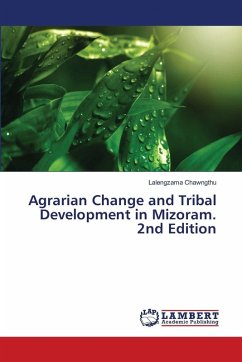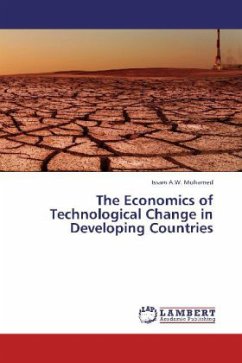
Economics of Tribal Education
A Study of KBK Districts of Odisha
Versandkostenfrei!
Versandfertig in 6-10 Tagen
52,99 €
inkl. MwSt.

PAYBACK Punkte
26 °P sammeln!
Education still eludes the tribals in India even after sixty years of planning and development. In a typically tribal dominated pocket like KBK districts of Odisha, three out of four tribals are illiterate, one among ten of their women is literate and 11.3% of 6-14 years tribal children remain out of school. Supply and demand side factors deter spread of education among the tribals. Distance to school from residence and lack of appropriate infrastructure work as supply side constraints on ST children going to school. The demand side constraints include parent s poverty, illiteracy and demand f...
Education still eludes the tribals in India even after sixty years of planning and development. In a typically tribal dominated pocket like KBK districts of Odisha, three out of four tribals are illiterate, one among ten of their women is literate and 11.3% of 6-14 years tribal children remain out of school. Supply and demand side factors deter spread of education among the tribals. Distance to school from residence and lack of appropriate infrastructure work as supply side constraints on ST children going to school. The demand side constraints include parent s poverty, illiteracy and demand for help in domestic work, large family, cost of education and the like. This book brings out in emphatic terms that socio-economic development of the tribals is function of education. The author succeeded in showing that primary education has an impact on social and economic levels of the tribals. It acts as a lever in improving their income level, agricultural productivity, general awareness and general health. Return to education is the highest in their case among the tribals.












